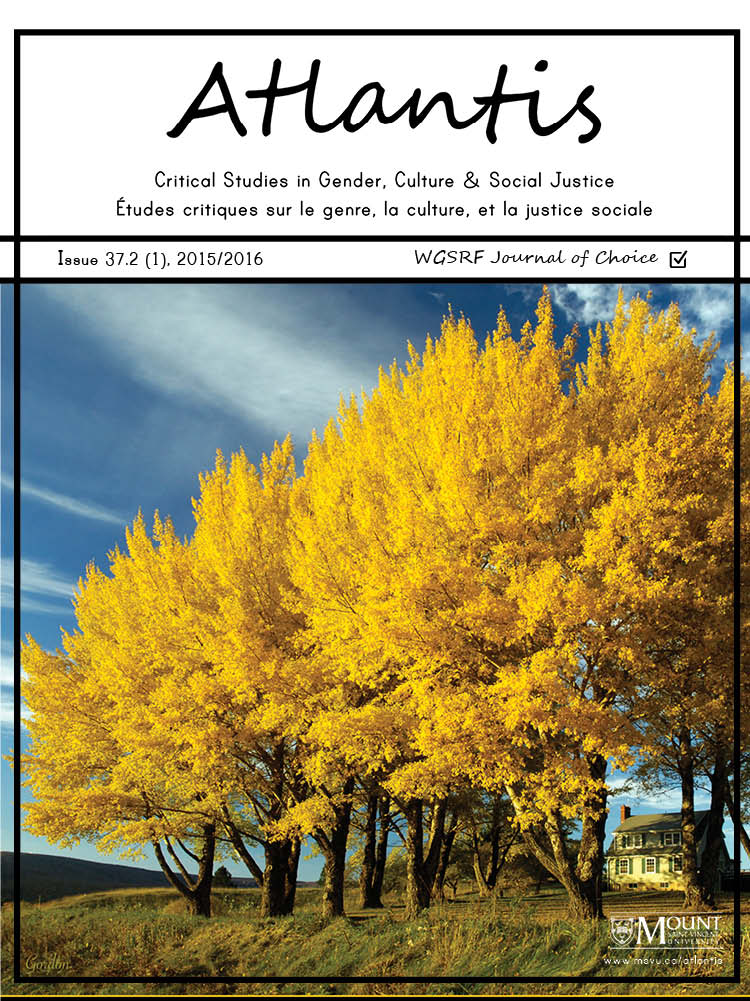The Fight for Substantive Equality: Women's Activism and Section 15 Of The Charter of Rights
Keywords:
constitutional history, constitutional law, equality rightsAbstract
Abstract
This article discusses the role of women’s groups in the development of section 15 of the Canadian Charter of Rights and Freedoms, the Charter’s principal equality rights guarantee, entrenched in the Constitution in 1981. Thanks to the leadership of Doris Anderson, submissions to the Special Joint Committee on the Constitution from the Canadian Advisory Council on the Status of Women (CACSW), the National Action Committee on the Status of Women (NAC), and the National Association of Women and the Law (NAWL) were instrumental in securing changes to section 15. However, the version in the entrenched Charter still fell short of women’s aspirations.
Résumé
Cet article aborde le rôle des groupes féministes dans l’élaboration de l’article 15 de la Charte canadienne des droits et libertés, principale garantie de l’égalité des droits dans la Charte, incorporée à la Constitution en 1981. Grâce au leadership de Doris Anderson, les soumissions au Comité mixte spécial sur la Constitution du Canada faites par le Conseil consultatif canadien sur la situation de la femme (CCCSF), le Comité canadien d’action sur le statut de la femme (CCASF) et l’Association nationale Femme et Droit (ANFD) ont joué un rôle déterminant dans l’obtention des modifications à l’article 15. Toutefois, la version incorporée à la Charte ne répondait toujours pas pleinement aux aspirations des femmes.
Metrics
References
Anderson, Doris. 1996. Rebel daughter: An Autobiography. Toronto: Key Porter Books.
Anderson, Doris. 2006. “The adoption of section 15: Origins and aspirations,” (5:1 Journal of Law & Equality. 5:1, 39-45.
Beverley Baines. 1981. “Women, human rights and the constitution.” In A. Doerr and M. Carrier, eds. Women and the Constitution in Canada. Ottawa: Minister of Supply and Services, 31-63.
Bowman, Myrna. 1981. “From bad to worse in one easy step: proposed transfer of divorce jurisdiction, an assessment.” In A. Doerr and M. Carrier, eds. Women and the Constitution in Canada. Ottawa: Minister of Supply and Services, 77-93.
Cook, Gail and Mary Eberts. 1976. “Policies affecting work.” In G. Cook, ed. opportunity for choice: A goal for women in Canada. Statistics Canada in association with C. D. Howe, 174-180.
Dawson, Mary. 2008. “The making of section 15 of the Charter,” Journal of Law & Equality 5:1, 25-37.
Eberts, Mary. 1979. “The rights of women.” In R. St. J. MacDonald and John Humphrey, Eds. The Practice of Freedom: Canadian Essays on Human Rights and Fundamental Freedoms. Butterworths, 225-248.
Eberts, Mary. 1981. “Women and constitutional renewal.” In A. Doerr and M. Carrier, Eds. Women and the Constitution in Canada. Ottawa: Minister of Supply and Services, 3-27.
Eberts, Mary. 2009. “Women as full citizens: addressing the barriers of gender and race in Canadian constitutional development.” In I. Sulkunen, S. Nevala-Narmi and P.Markkola, Eds. Suffrage, gender and citizenship: international perspectives on parliamentary reform. Newcastle-upon-Tyne: Cambridge Scholars Publishing, 377-414.
Elliott, Robin. 1982. “Interpreting the Charter – Use of the earlier versions as an aid,” UBC Law Review Charter Edition, 11-57.
Fédération des Femmes du Québec. 1981. “Statement on jurisdiction in family law.” In A. Doerr and M. Carrier, Eds. Women and the Constitution in Canada. Ottawa: Minister of Supply and Services, 119-120.
Kome, Penney. 1983. The taking of twenty-eight: women challenge the constitution. Toronto: The Women’s Press.
Kome, Penney. 2007. “Face-off: Doris Anderson at the Canadian Advisory Council on the Status of Women,” Canadian Women’s Studies 26:2, 61-69.
Leeson, Howard. 2000. “Section 33, The notwithstanding clause: A paper tiger?” IRPP: Choices: Courts and Legislatures. June 6:4
Molgat, Anne, with Joan Grant-Cummings. N.d. NAC Herstory, www.nac-cca.ca
Pal, Leslie and F.L. Morton. 1986. “Bliss v. Attorney General of Canada: From legal defeat to political victory,” Osgoode Hall Law Journal, 24:1, 141-160.
Reid, Julyan with Linda Markowsky. 2007. “A national presence,” Canadian Women’s Studies 26:2, 56-60.
Romanow, Roy, John Whyte and Howard Leeson. 1984. Canada notwithstanding: The making of the Constitution 1976-1982. Toronto: Carswell / Methuen.
Royal Commission on the Status of Women in Canada. 1970. Report. Ottawa: Information Canada.
Sawer, Marian and Jill Vickers. 2001. “Women’s constitutional activism in Australia and Canada, “Canadian Journal of Women and the Law. 13,1-36.
Strayer, Barry. 2008. “In the beginning…: The origins of section 15 of the Charter,” Journal of Law & Equality 5:1, 13-24.
Tarnopolsky, Walter. 1975. The Canadian Bill of Rights. 2d rev. ed. Toronto: McClelland and Steward, the Carleton Library No. 88, 291.
Williams, Wendy. 1983. “Sex discrimination under the Charter: Some problems of theory,” Paper Presented at the Charter of Rights Educational Fund Conference on Sex Discrimination: An Overview of Canadian & American Law. 19 February, 6.3-6.5. Charter of Rights Educational Fund, Study Day Papers.
Downloads
Published
Issue
Section
License
Authors who publish with this journal agree to the following terms:
1. Authors retain copyright and grant the journal right of first publication, with the work simultaneously licensed under a Creative Commons Attribution 4.0 International License that allows others to share the work with an acknowledgement of the work's authorship and initial publication in this journal.
2. Authors are aware that articles published in Atlantis are indexed and made available through various scholarly and professional search tools, including but not limited to Erudit.
3. Authors are able to enter into separate, additional contractual arrangements for the non-exclusive distribution of the journal's published version of the work (e.g., post it to an institutional repository or publish it in a book), with an acknowledgement of its initial publication in this journal.
4. Authors are permitted and encouraged to preprint their work, that is, post their work online (e.g., in institutional repositories or on their website) prior to and during the submission process. This can lead to productive exchanges, as well as earlier and greater citation of published work. Read more on preprints here.






